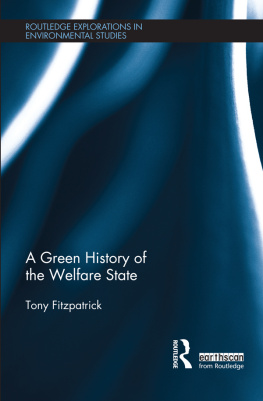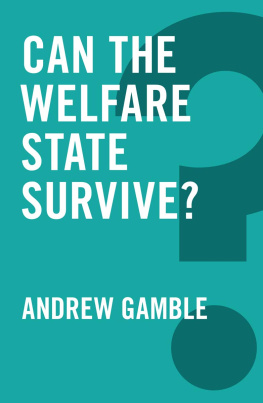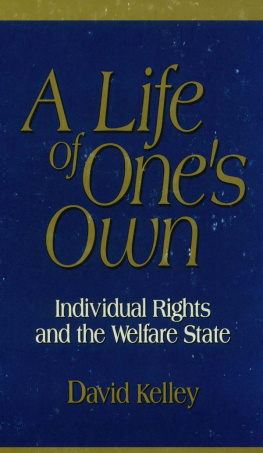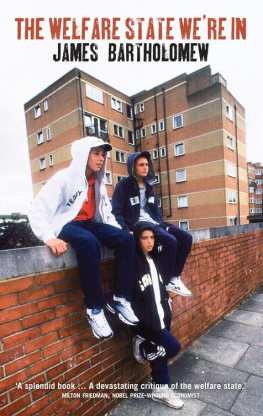ROUTLEDGE LIBRARY EDITIONS:
FEMINIST THEORY
FEMINISTS AND STATE WELFARE
FEMINISTS AND STATE WELFARE
JENNIFER DALE AND PEGGY FOSTER
Volume 14
First published in 1986
This edition first published in 2013
by Routledge
2 Park Square, Milton Park, Abingdon, Oxon, OX14 4RN
Simultaneously published in the USA and Canada
by Routledge
711 Third Avenue, New York, NY 10017
Routledge is an imprint of the Taylor & Francis Group, an informa business
1986 Jennifer Dale and Peggy Foster
All rights reserved. No part of this book may be reprinted or reproduced or utilised in any form or by any electronic, mechanical, or other means, now known or hereafter invented, including photocopying and recording, or in any information storage or retrieval system, without permission in writing from the publishers.
Trademark notice: Product or corporate names may be trademarks or registered trademarks, and are used only for identification and explanation without intent to infringe.
British Library Cataloguing in Publication Data
A catalogue record for this book is available from the British Library
ISBN: 978-0-415-53401-7 (Set)
eISBN: 978-0-203-08796-1 (Set)
ISBN: 978-0-415-63570-7 (Volume 14)
eISBN: 978-0-203-08774-9 (Volume 14)
Publisher's Note
The publisher has gone to great lengths to ensure the quality of this reprint but points out that some imperfections in the original copies may be apparent.
Disclaimer
The publisher has made every effort to trace copyright holders and would welcome correspondence from those they have been unable to trace.
Feminists and State Welfare
Feminists and State Welfare
Jennifer Dale and Peggy Foster
First published in 1986
by Routledge & Kegan Paul plc
14 Leicester Square, London WC2H 7PH, England
9 Park Street, Boston, Mass. 02108, USA and
Broadway House, Newtown Road,
Henley on Thames, Oxon RG9 1EN, England
Set in Times, 10 on 11 pt
Printed and bound in Great Britain by
Butler and Tanner Ltd, Frome and London
Jennifer Dale and Peggy Foster 1986
No part of this book may be reproduced in
any form without permission from the publisher,
except for the quotation of brief passages
in criticism
Library of Congress Cataloging in Publication Data
Dale, Jennifer.
Feminists and state welfare.
(Radical social policy)
Bibliography: p.
Includes index.
1. FeminismGreat Britain. 2. Welfare state.
3. Sex discrimination against womenGreat Britain.
4. Public welfareGreat BritainHistory. 5. Women
and socialism. I. Foster, Peggy. II. Title.
III. Series.
HQ1236.5.G7D35 1986 305.4'2'0942 85-11927
British Library CIP data also available
ISBN 0-7102-0278-4 (pb)
Contents
Acknowledgments
The idea of writing this book grew out of our experience of teaching a course on Women and the Welfare State, but without the encouragement of Vic George it might well have remained just another idea. The task of gathering material was greatly eased by our access to the resources including its most helpful staff of the EOC Information Centre, one of the few headquarters of a national organization to be located North of Watford. The staff of the Fawcett Library in London were also most helpful in tracking down historical sources. We are grateful to Annie Hudson, Jan Owens and Carolyn Taylor for allowing us access to their unpublished research. The final version of the manuscript has been significantly improved by comments from a number of colleagues and friends. We are particularly grateful to Mikki David, Paul Wilding and Philippa Brewster of RKP for reading the whole draft. Ian Gough, Fiona Williams and Linda Harvey all raised issues which led us to rethink certain aspects of our original analysis. For typing, so patiently and efficiently, the many versions of the manuscript, we thank Jackie Boardman, Enid Roberts and Linda Harvey. Finally we thank our students whose interest in a feminist perspective on welfare provided us with an incentive to keep writing through all the ups and downs of an academic year.
Introduction
Women and Welfare: these words conjure up a wide range of images. We see women as paid workers within the Welfare State hospital cleaners, nurses, home helps, social workers and as unpaid carers within the home, without whom the statutory social services could not function. We also see women as the main users of welfare services both as direct consumers and as negotiators on behalf of other members of their families.
Now let us consider the phrase men and welfare. Our pictures are very different. We see men in well-paid professional and managerial roles. We see them dominating policy making as politicians and top civil servants. We also see men as the leaders of those interest groups from the BM A to the TUC to whom social policy makers pay at least some attention.
These contrasting images may be stereotypes but they nevertheless raise a number of key questions about the relationship between women and the Welfare State. Why have women played such a comparatively small role in social policy making? Why is it women, rather than men, who spend so much of their time attempting to negotiate a way through the maze of welfare services? Why are low paid welfare workers predominantly women and high paid welfare professionals and managers mainly men? Who benefits from women's central role as unpaid carers within the family? Who loses out and why?
This book will attempt to answer these questions drawing on feminist theory, research and analysis. It will thus be a book about women and welfare, and a book about feminists major contribution to our understanding of the Welfare State.
There are, of course, other critiques of the Welfare State which, like feminism, unite theoretical analysis with a commitment to change society. Mainstream social policy analysis was dominated until the 1970s by Fabian approaches which concentrated on inequality in the distribution of the costs and benefits of welfare services. More recently, Marxists have developed a more sophisticated analysis of the way capitalism has constrained and distorted the nature of the Welfare State, and have argued that fundamental changes in the economic system are necessary if the Welfare State is to live up to its promise to meet human need. Finally, some Marxists have moved away from the orthodox emphasis on the quantitative limits to the Welfare State and have reclaimed an older socialist tradition which sees human freedom as dependent upon new forms of social relationships. Their work parallels that of libertarian critics of industrial society who also stress the disabling role of professionals and the sense of powerlessness which modern society induces.
Feminist analysis embraces these concerns and relates them specifically to the position of women. Feminists have looked at sexual inequalities in the distribution of society's material resources. They have explored the complex relationship between capitalism, statutory welfare services, and women's unequal position in the family and at work. They have documented the specific ways in which female welfare clients are exposed to the disabling effects of welfare professionals. Feminists have done more, however, than simply bring in a gender dimension to existing critiques. They have moved the debate on the Welfare State forward in two crucial respects.











